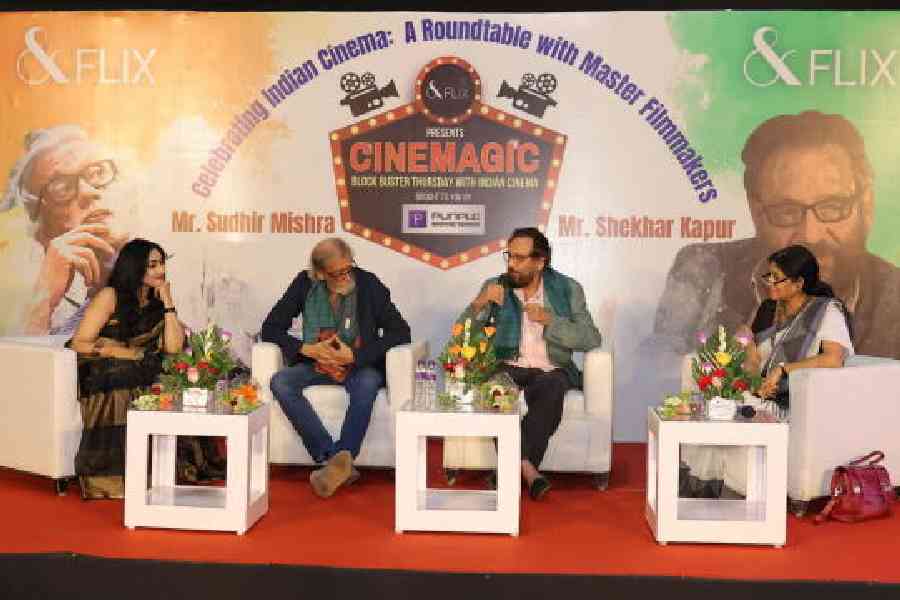Purple Movie Town recently hosted an engaging panel discussion titled ‘Celebrating Indian Cinema,’ featuring filmmakers Shekhar Kapur and Sudhir Mishra. The two talked about the evolution of Indian cinema, the creative process, and the future of storytelling, captivating an audience of aspiring filmmakers and media students. The panel included actresses Rituparna Sengupta and Roopa Ganguly, as well as Purple Movie Town’s Pritimoy Chakraborty. The discussion was moderated by actress Payel Mukherjee.
Mishra expressed a profound connection to Calcutta, sharing his experiences under Badal Sircar’s mentorship during his formative years. He discussed the influences that shaped his distinctive voice in Indian cinema, while also reflecting on the socio-political transformations that have impacted the industry over the decades. Emphasising the importance of honesty in filmmaking, he recounted anecdotes from his first film project, too. On the topic of Indian cinema’s image abroad, Mishra pointed out the limitations of its representation, insisting that “Indian cinema is not just Bollywood; it also includes regional films and independent filmmakers from areas such as the North East.”
Shekhar Kapur took a moment to reflect on his journey in bringing these timeless stories to life on screen. He delved into the influences that have shaped his creative path, shared his vision for incorporating new technologies and AI into filmmaking, and discussed his thoughts on the changing global cinematic landscape. Rituparna contributed to the discussion by praising Bandit Queen, highlighting how it continues to inspire audiences years after its release, and referred to Kapur as a ‘master of diversification’ in terms of his filmography.
Kapur likened his passion for filmmaking to his childhood love for rock climbing. “If you’re not afraid of falling, you won’t be creative. I often throw myself into chaos,” he explained. He emphasised that filmmakers should avoid playing it safe and instead focus on staying true to their artistic vision. “Today’s cinema in India seems to have lost its magic... with multiplexes, watching films has become quite expensive for the middle class... for me, filmmaking has always been an organic process. What worked for Masoom was that I didn’t know how to make a film,” Kapur shared, recalling how the film, made on a modest budget of just ₹11 lakh, managed to become an overnight sensation after a week of running in nearly empty theatres.
Both filmmakers underlined how films have historically mirrored reality, even as this reflection transforms over time. Mishra discussed the distinction between how popular cinema and parallel cinema portray reality, while Kapur expressed concerns that contemporary cinema often lacks the depth of earlier works in representing society. Rituparna noted that a film’s success is often determined by its marketing and the outcome of its opening weekend. Mishra added that marketing has begun to overshadow the artistic aspects of filmmaking in India.










